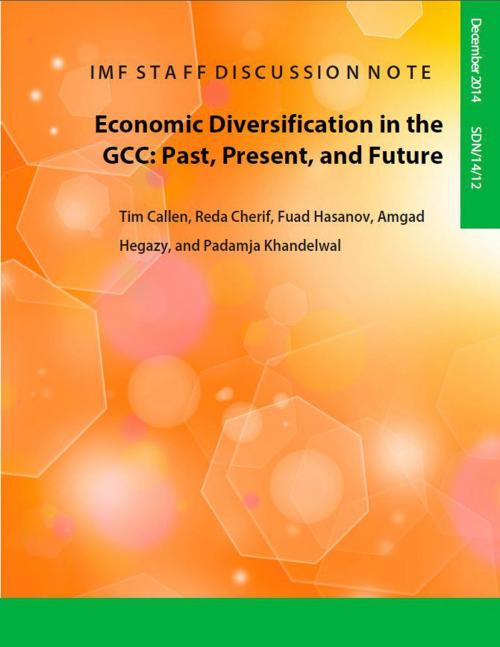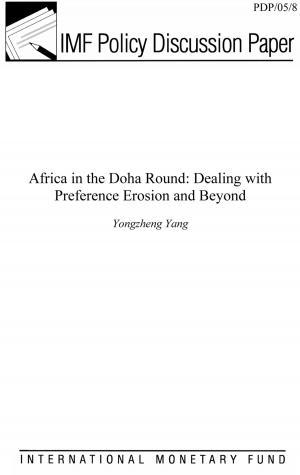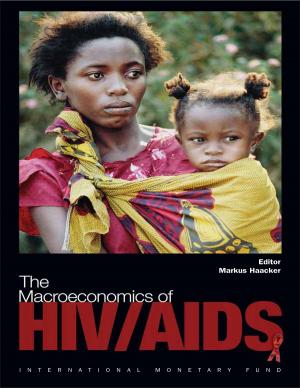Economic Diversification in the GCC: Past, Present, and Future
Business & Finance, Economics, Money & Monetary Policy, Macroeconomics| Author: | Tim Mr. Callen, Reda Cherif, Fuad Hasanov, Amgad Mr. Hegazy, Padamja Khandelwal | ISBN: | 9781498301688 |
| Publisher: | INTERNATIONAL MONETARY FUND | Publication: | December 23, 2014 |
| Imprint: | INTERNATIONAL MONETARY FUND | Language: | English |
| Author: | Tim Mr. Callen, Reda Cherif, Fuad Hasanov, Amgad Mr. Hegazy, Padamja Khandelwal |
| ISBN: | 9781498301688 |
| Publisher: | INTERNATIONAL MONETARY FUND |
| Publication: | December 23, 2014 |
| Imprint: | INTERNATIONAL MONETARY FUND |
| Language: | English |
Abstract: The economies of the six Gulf Cooperation Council (GCC) countries are heavily reliant on oil. Greater economic diversification would reduce their exposure to volatility and uncertainty in the global oil market, help create jobs in the private sector, increase productivity and sustainable growth, and help create the non-oil economy that will be needed in the future when oil revenues start to dwindle. The GCC countries have followed many of the standard policies that are usually thought to promote more diversified economies, including reforms to improve the business climate, the development of domestic infrastructure, financial deepening, and improvements in education. Nevertheless, success to date has been limited. This paper argues that increased diversification will require realigning incentives for firms and workers in the economies—fixing these incentives is the “missing link” in the GCC countries’ diversification strategies. At present, producing non-tradables is less risky and more profitable for firms as they can benefit from the easy availability of low-wage foreign labor and the rapid growth in government spending, while the continued availability of high-paying and secure public sector jobs discourages nationals from pursuing entrepreneurship and private sector employment. Measures to begin to address these incentive issues could include limiting and reorienting government spending, strengthening private sector competition, providing guarantees and financial support for those firms engaged in export activity, and implementing labor market reforms to make nationals more competitive for private sector employment.
Abstract: The economies of the six Gulf Cooperation Council (GCC) countries are heavily reliant on oil. Greater economic diversification would reduce their exposure to volatility and uncertainty in the global oil market, help create jobs in the private sector, increase productivity and sustainable growth, and help create the non-oil economy that will be needed in the future when oil revenues start to dwindle. The GCC countries have followed many of the standard policies that are usually thought to promote more diversified economies, including reforms to improve the business climate, the development of domestic infrastructure, financial deepening, and improvements in education. Nevertheless, success to date has been limited. This paper argues that increased diversification will require realigning incentives for firms and workers in the economies—fixing these incentives is the “missing link” in the GCC countries’ diversification strategies. At present, producing non-tradables is less risky and more profitable for firms as they can benefit from the easy availability of low-wage foreign labor and the rapid growth in government spending, while the continued availability of high-paying and secure public sector jobs discourages nationals from pursuing entrepreneurship and private sector employment. Measures to begin to address these incentive issues could include limiting and reorienting government spending, strengthening private sector competition, providing guarantees and financial support for those firms engaged in export activity, and implementing labor market reforms to make nationals more competitive for private sector employment.















